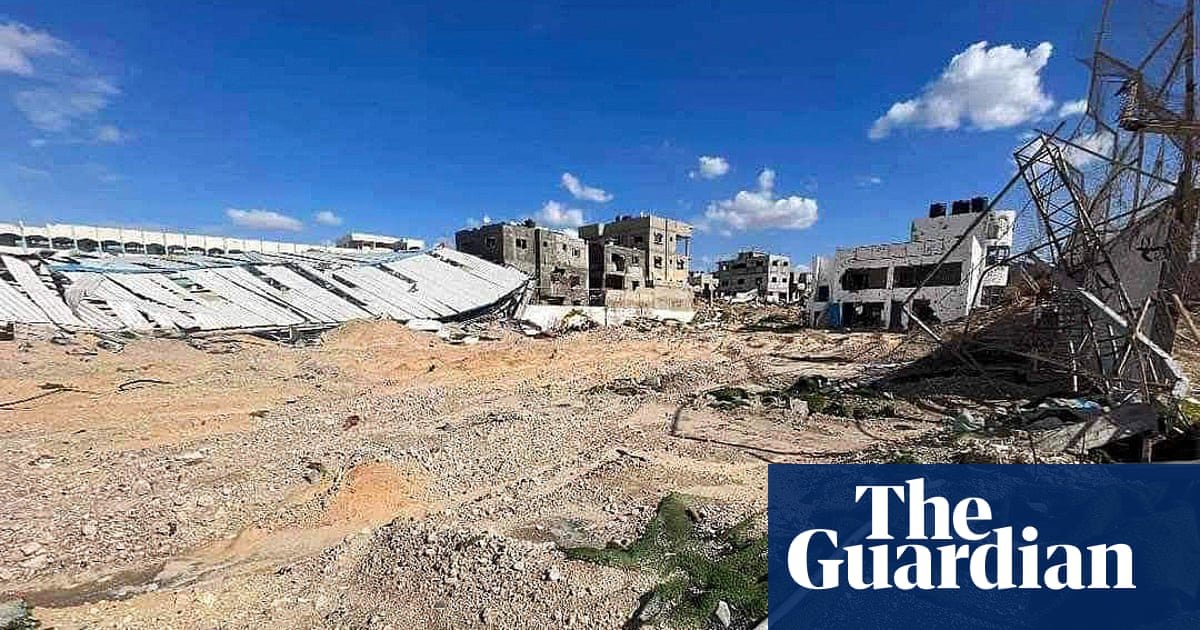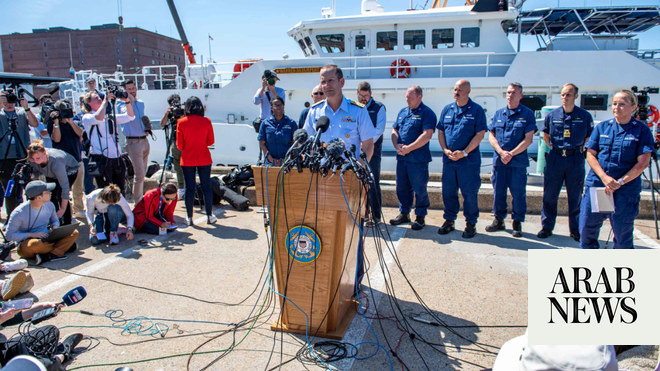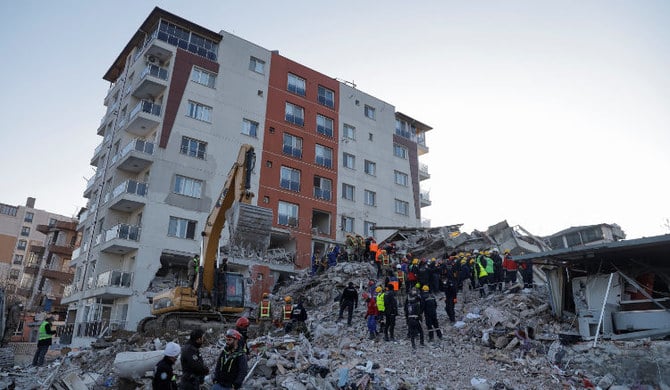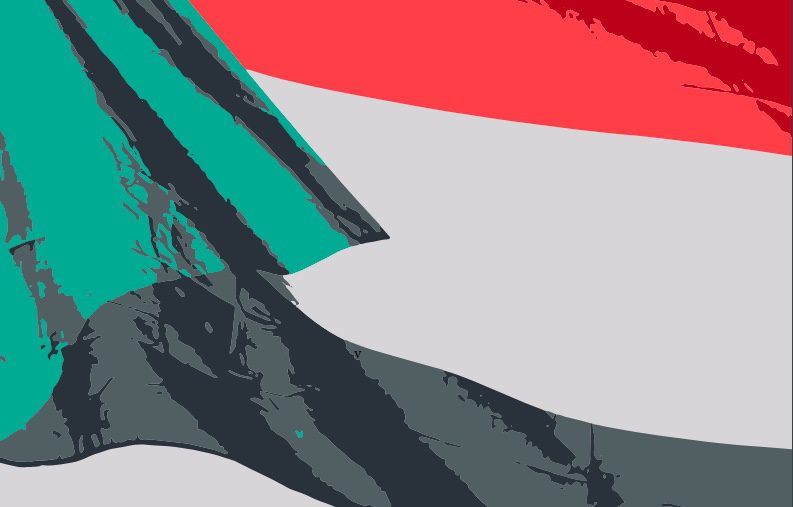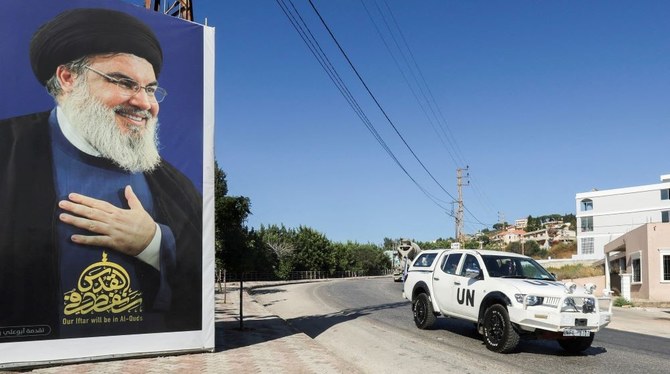
Hassan Nasrallah’s talk about not wanting to “drag Iran into a war with Israel and the United States” and his insistence that Hezbollah would wage this battle alone is highly indicative. I would not be surprised to see people commenting that they wished he cared as much for what remains of Lebanon’s interests as he does for the interests of Iran.
Quoting an “Iranian source,” Reuters on Friday reported that the Hezbollah secretary-general made these remarks to Quds Force Commander Esmail Ghaani during their meeting in Beirut in February. Nasrallah reportedly added: “This is our battle.” Last month’s meeting was reportedly the third between the two men since the events of Oct. 7, all of which have dealt with the risks of a broad Israeli attack on Hezbollah and, by extension, Iran’s foothold in Lebanon and the region.
The atmosphere on the Lebanese-Israeli border is doubtlessly unsettling, especially amid the war of statements and bellicose speeches being made by the two sides.
More than that, the role that Iran has assigned to the Houthis in the Red Sea and the Gulf of Aden has entered a new phase, considering the news of American-Iranian meetings in Muscat that The New York Times reported last week. The newspaper claimed that the two sides discussed security in the Red Sea and attacks by Iranian proxies on American bases in both Iraq and Syria.
The New York Times reported that the “indirect” Muscat talks — which were not announced at the time — had been requested by Tehran and were held on Jan. 10. Omani officials conveyed messages between the Iranian and American delegations, who were sitting in separate rooms. The Iranian delegation was headed by Deputy Foreign Minister for Political Affairs Ali Bagheri Kani, while the American delegation was led by National Security Council Coordinator for the Middle East and North Africa Brett McGurk.
Meanwhile, Israeli Prime Minister Benjamin Netanyahu continues to ramp up his political-military rhetoric, stressing the “inevitability” of an assault on Rafah, which is the final refuge of the people of Gaza amid Israel’s war of displacement that has claimed more than 30,000 lives. The West’s rejection of the offensive does not seem to reflect any real determination to prevent it or the humanitarian disaster that several bodies have warned would ensue from it.
Even the personal criticisms of President Joe Biden and Democratic Senate Majority Leader Chuck Schumer (the highest-ranking Jewish official in Washington), who called for Netanyahu’s departure after snap elections, have not come with serious threats. Worse, Sen. Mitch McConnell, the Republican leader in the Senate, outbid Schumer in his defense of Israel, attacking Biden and criticizing his Democratic colleague.
On a related note, amid the ambiguity of the US administration’s stance on the scenario of the coming hours and days in the Gaza Strip, some have presented a different reading of Washington’s decision to set up aid facilities on the central coast of the Gaza Strip. They see it as a substitute for the vital Rafah and Kerem Shalom crossings and, thus, as evidence that the US is unwilling or unable to prevent the attack on Rafah.
In this regard, there are some undeniable facts that should not be downplayed, including the following.
The US has not changed its stance on confining the fighting and violence to the Gaza Strip. It has been reiterating this position since Israel began its operations in response to the Oct. 7 attack. While no US administration would want to get involved in wars or long-term problems during an election year, plunging a region as sensitive as the Middle East into political security quicksand would be a disastrous move for the future.
Washington’s position on Tehran adds to the confusion. Whether in Lebanon, Iraq or Syria, it does not seem that the US will take a decisive or stern position on the Iranian leadership. This is despite the fact that Washington is well aware that Tehran calls the shots for all the regional players in its orbit. Indeed, the US administration is going in the opposite direction, diplomatically engaging Iran in Muscat and releasing billions of dollars in assets to the Iranian leadership, knowing full well where those funds will go and how they will be spent.
The situation in the region can still be contained for now. However, the Biden administration must — at the very least — understand that this could change. Rather, it will inevitably change for the worse if Donald Trump returns to the White House and Netanyahu maintains his ability to extort through violence, occupation and displacement.
Whether in Lebanon, Iraq or Syria, it does not seem that the US will take a decisive or stern position on the Iranian leadership.
Eyad Abu Shakra
As we know, many crucial elections will be held across the globe this year. It is obvious that racist, populist and neo-fascist movements are seeking major victories. Even the oldest and most stable democracies that have maintained the appearance of gravitas, claiming moderation and respect for human rights, are rapidly changing for the worse. There are indications from across the globe — and this is expected to reflect negatively on the Middle East — that the future does not bode well at all for religious, ethnic and cultural coexistence.
Thus, problems that can be resolved or contained today could become insurmountable if action is not taken in the next few months.
To put it plainly, the Arab world will not stabilize so long as Israel is beholden to the whims of its most extreme right-wing fascists and racists and their dictates, and while Iran continues to exploit its proxies to make deals with the West — both openly and in secret.
Eyad Abu Shakra is managing editor of Asharq Al-Awsat. X: @eyad1949




